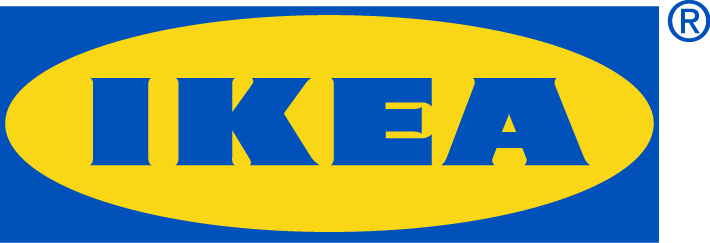The 'No More Plastic Bag' Movement Continues!
Published 04-28-09
Submitted by IKEA
/PRNewswire/ -- It's over six months since IKEA said 'no more plastic bags' to be offered at IKEA US stores... only go reusable. And since that time, a lot has happened. Cities across the country took heed and decided to jump in the bagless effort. Or at least they started a recycling program. Check out the status below and see what’s happening across America. And for the lighter side of reusable bag living, IKEA is offering a 'Where has your Blue Bag been?' contest online at IKEA-USA.com. Asking for photos, video or digital art of people using the iconic IKEA blue bag. This is a great way to showcase the many great ways and places to go reusable! And also win a great eco-friendly vacation, IKEA Gift Card or spa treatment. The contest is open to U.S. residents until June 7, 2009.
(PHOTO: http://www.newscom.com/cgi-bin/prnh/20090428/NY06775 )
PLASTIC BAG STATUS IN THE U.S.
In March 2007, IKEA became the first major U.S. retailer to discontinue distributing free plastic bags at checkout in all its U.S. stores. Many cities across America have followed suit, placing taxes and bans on disposable plastic bags. According to recent news, cities that are considering or have taken actions to ban retail availability of disposable plastic bags, or institute a disposable plastic bag tax include Philadelphia, San Francisco, Boston, Dallas, District of Columbia, Baltimore, Detroit, Miami, Seattle, Portland and West Sacramento. Plastic bag recycling centers and collection sites have begun to appear or are planned to begin appearing in retail outlets in cities including Austin, Charlotte, Chicago, Dallas and New York. Los Angeles, Minneapolis, Orlando and San Diego are supporting voluntary programs that encourage use of reusable shopping bags as well as disposable plastic bag recycling.
BACKGROUND
With the introduction of its leadership 'bag the plastic bag' program in March 2007, IKEA set a goal of reducing IKEA stores’ plastic bag consumption by 50%; from 70 million to 35 million plastic bags in the first year. The call was to go reusable, particularly focusing on the iconic, durable IKEA blue bag, available for just $.59 or don’t use a bag at all. And IKEA also said if that was not an acceptable solution, IKEA plastic bags could be purchased for $.05, with all proceeds going to American Forests (the nation’s oldest non-profit citizens conservation organization) to plant trees to restore forests and help reduce CO2 emission. Partners for more than a decade, IKEA and American Forests have planted more than 850,000 trees in the U.S., enough to offset approximately 100,000 tons of CO2 emissions over the next 40 years. The ‘Bag the Plastic bag’ program has resulted in the planting of 516,000 trees. According to the Environmental Protection Agency, the U.S. consumes over 380 billion plastic bags, sacks and wraps each year. Each year, Americans throw away some 100 billion polyethylene plastic bags, and less than one percent of them are recycled. Single-use bags made of high-density polyethylene are the main culprit. Once brought into existence to tote purchases, they will accumulate and persist on our planet for up to a thousand years. Paper bags are also not the best alternative; stacking 10 pallets of paper bags is equivalent to one pallet of plastic, thus increasing the CO2 footprint. It takes 14 billion trees to produce 10 billion grocery bags.
About IKEA
Since its 1943 founding in Sweden, IKEA has offered home furnishings and accessories of good design and functional living solutions at prices so low that the majority of the people can afford them. Currently there are more than 285 IKEA stores in 36 countries, including 47 in North America (11 in Canada; 36 in the US). IKEA has been named to BusinessWeek's List of The Best Global Brands (August 7, 2006) and for four consecutive years, Working Mother magazine's annual list of the "100 Best Companies for Working Mothers." IKEA was listed in March 2007, on Fast Company's Fast 50, for its environmentally responsible products, as well as five consecutive years, Training magazine's annual list of top companies that excel at human capital development. IKEA incorporates environmentally friendly efforts into day-to-day business and continuously supports social initiatives that benefit causes such as children and the environment including UNICEF, Save the Children and American Forests. To visit the IKEA Web site, please go to www.IKEA-usa.com.
About American Forests
AMERICAN FORESTS helps people improve the environment with trees and forests. We are a world leader in tree planting for environmental restoration and carbon sequestration. AMERICAN FORESTS helps people identify, recognize and preserve their special trees, and our community- based initiatives help people plan and implement local actions to restore and maintain healthy ecosystems and communities. American Forests is on the World Wide Web at www.americanforests.org.
- EPA stats: http://www.reusablebags.com/facts.php?id=4
- Plastic Bag thrown away: http://www.worldwatch.org/node/1499
- Bags on the planet for 1,000 years http://www.reusablebags.com/facts.php?id=4

IKEA
IKEA
IKEA strives to be 'The Life Improvement Store,' and since its 1943 founding in Sweden, has offered home furnishings of good design and function, at low prices so the majority of people can afford them. There are currently more than 320 IKEA stores in 39 countries, including 38 in the U.S. IKEA, the world’s leading home furnishings company, incorporates sustainable efforts into day-to-day business and supports initiatives that benefit children and the environment. For more information, go to IKEA-USA.com.
More from IKEA

